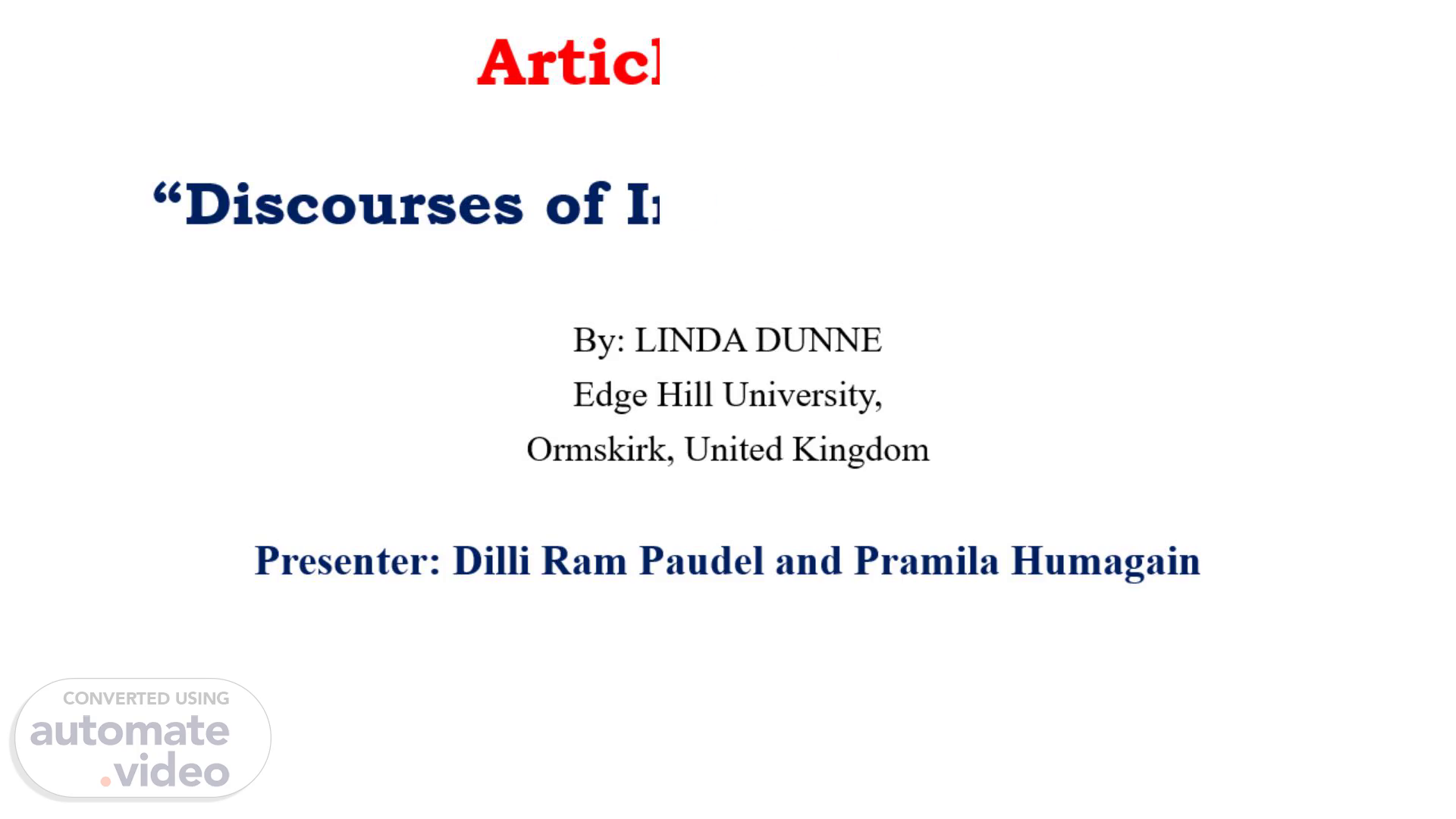
Article Review "Discourses of Inclusion: a Critique"
Scene 1 (0s)
Article Review “Discourses of Inclusion: a Critique”.
Scene 2 (10s)
Foucault’s notion of discourse (Critically thinking about recent discourse in inclusive education) Main target was self-evident of inclusion and interrogate, question for normalizing, hegemonic discourse and as a universalizing concept How the contemporary discourse of inclusion is constructed and organized in education with effects Multi-method research approach Questions( to whom inclusion is needed) Participants are teacher, educationist, lecturer(by online and give their opinion in written form).
Scene 3 (30s)
Themes. (Discourses that are presented also appeared to reverberate with a recurrent inside/outside theme) Policy discourse: certain ways of thinking and acting become available to us, while other ways remain ‘un-thought and unperformed, Inclusion was seen as a good thing, but not for everyone Othering Discourse: Inclusion was heavily characterized by processes of othering. Its discourse appeared to be constructed within a powerful othering framework Self Discourse: Happiness, emotional well-being and engagement have become central concerns within UK policy. Self-esteem is in inclusion. Self-esteem closely associated happiness.
Scene 4 (55s)
Analysis and result. Analysis the data in themes of ‘Policy’, ‘Othering’ and ‘Self’ Effects of inclusive education are discussed and it is suggested that newly emergent discourses of ‘self’ Neo-liberal forms of governance.
Scene 5 (1m 8s)
Conclusion. When the psychology-derived construct of self-esteem is viewed as a technology of the self, it evokes a particular form of individualism that involves work on, and investment in, the self. wider social practices relating to neo-liberalism. Emergent discourses of inclusion that focus on the self, and on the investment in self-orientated constructs, potentially serve the interests of neo-liberal forms of governance. newly emergent discourses of ‘self’ are compatible with neo-liberal forms of governance.
Scene 7 (1m 36s)
Thank You.